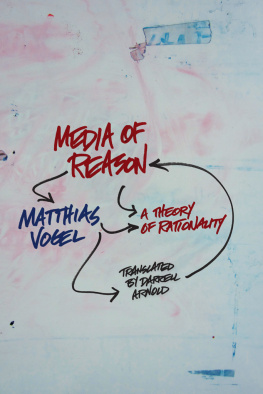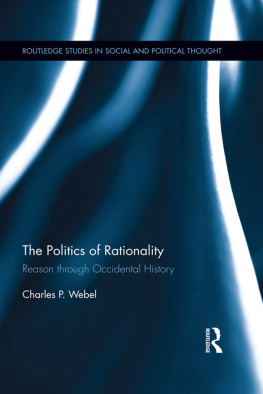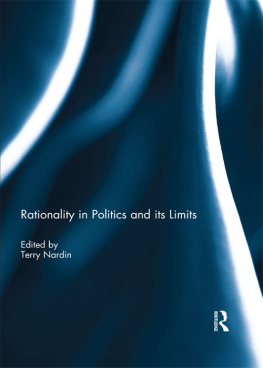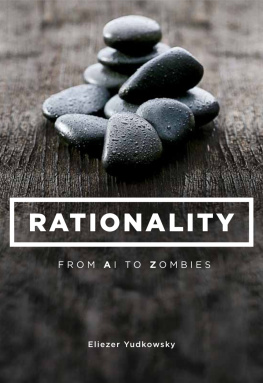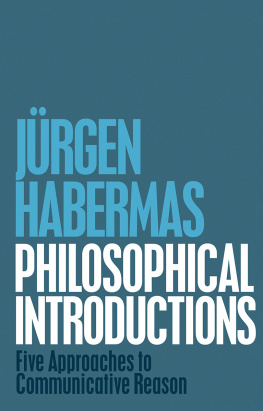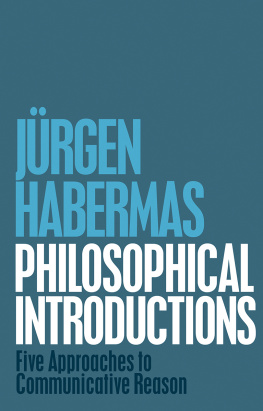MEDIA OF REASON
NEW DIRECTIONS IN CRITICAL THEORY
Amy Allen, General Editor
New Directions in Critical Theory presents outstanding classic and contemporary texts in the tradition of critical social theory, broadly construed. The series aims to renew and advance the program of critical social theory, with a particular focus on theorizing contemporary struggles around gender, race, sexuality, class, and globalization and their complex interconnections.
Narrating Evil: A Postmetaphysical Theory of Reflective Judgment, Mara Pa Lara
The Politics of Our Selves: Power, Autonomy, and Gender in Contemporary Critical Theory, Amy Allen
Democracy and the Political Unconscious, Nolle McAfee
The Force of the Example: Explorations in the Paradigm of Judgment, Alessandro Ferrara
Horrorism: Naming Contemporary Violence, Adriana Cavarero
Scales of Justice: Reimagining Political Space in a Globalizing World, Nancy Fraser
Pathologies of Reason: On the Legacy of Critical Theory, Axel Honneth
States Without Nations: Citizenship for Mortals, Jacqueline Stevens
The Racial Discourses of Life Philosophy: Ngritude, Vitalism, and Modernity, Donna V. Jones
Democracy in What State? Giorgio Agamben, Alain Badiou, Daniel Bensad, Wendy Brown, Jean-Luc Nancy, Jacques Rancire, Kristin Ross, Slavoj iek
Politics of Culture and the Spirit of Critique: Dialogues, edited by Gabriel Rockhill and Alfredo Gomez-Muller
The Right to Justification: Elements of Constructivist Theory of Justice, Rainer Forst
The Scandal of Reason: A Critical Theory of Political Judgment, Albena Azmanova
The Wrath of Capital: Neoliberalism and Climate Change Politics, Adrian Parr
MEDIA OF REASON
A Theory of Rationality
MATTHIAS VOGEL
Translated by Darrell P. Arnold
Columbia University Press New York 
Columbia University Press
Publishers Since 1893
New York Chichester, West Sussex
cup.columbia.edu
Copyright Suhrkamp Verlag, Frankfurt
Translation copyright 2012 Columbia University Press
All rights reserved
E-ISBN 978-0-231-52775-0
Library of Congress Cataloging-in-Publication Data
Vogel, Matthias.
[Medien der Vernunft. English]
Media of reason : a theory of rationality / Matthias Vogel; translated by Darrell P. Arnold.
p. cm. (New directions in critical theory)
Includes bibliographical references and index.
ISBN 978-0-231-15058-3 (cloth : alk. paper)
1. Rationalism. 2. Mass mediaPhilosophy. I. Arnold, Darrell (Darrell P.) II. Title.
B833.V6412 2012
128.33dc23
2012021327
A Columbia University Press E-book.
CUP would be pleased to hear about your reading experience with this e-book at .
References to websites were accurate at the time of writing. Neither the author nor Columbia University Press is responsible for URLs that may have expired or changed since the manuscript was prepared.
CONTENTS
In our century hardly a basic philosophical concept has been reconstructed and assessed in such irreconcilable ways as the concept of rationality. While somewho are obliged to the tradition of the Enlightenmentplace the development of a stable concept of rationality at the center of their theoretical efforts, indeed even maintain that philosophy in its postmetaphysical, post-Hegelian currents is converging toward the point of a theory of rationality, others are working to dismantle it, are busy debunking and demonizing it. A third group of philosophers has become suspicious of these efforts, whether of one group or the other. They have already left reflections on reason behind and turned away from disputes about the concept of rationality, despite the fact that the attempt to specify reason has been one of the central issues of European philosophy since its beginnings.
Against the background of these diverging tendencies, in this book I want to make a proposal that, on the one hand, adheres to the perspective of the Enlightenment, but that, on the other, attempts to accommodate reservations about the typical reconstructions of reason. I will do so by offering a view of rationality that is not guilty of the one-sidedness that motivates the attempts of the postmoderns and their predecessors to debunk it. Even if many of the existing reservations about reason can only be taken seriously as symptoms of a discomfort, which is often only able to be articulated at the cost of a pragmatic self-contradiction, and it is not rare that arguments are lacking that could be dealt with in detail, the tradition of the Enlightenment is obliged to a sensitivity that attempts to consider every reservation appropriately. To demand that these reservations assume the form of arguments may not appear to be an inappropriate expectation in the context of philosophy; nevertheless, to make this a condition for a self-critical withdrawal from the process of the Enlightenment appears to me to be too demanding of a requirement. Here I would like Enlightenment to be understood as an open learning process, which need not be viewed as a closed or an incorrigibly violent process, yet to which, moreover, in my view, no acceptable alternatives exist. For as beings that are what we are because we interpret ourselves, we are dependent on articulated self-understandings. And if the self-understandings prove to be too simple or distorted, then we have no alternative, as learning beings, but to revise them in the process of Enlightenment. However, introducing the concept of a learning process already raises difficulties for any rational-theoretical-based Enlightenment project. For if by learning one means more than a physicalistically or functionalistically interpreted behavior-changing process, then it appears that, for its part, explicating what a learning process consists in is already dependent on a concept of rationality. For a learning process with steps that we should be able to assume a critical stance toward presupposes a concept of rationality, which codevelops in the learning process: with the help of this concept of rationality, we are able to assess and justify the alternatives generated in the learning process. The problem of circular reference contexts depicted here is characteristic of the difficulties that are found in the framework of a theory of rationality with normative claims. And yet we have no alternative to a procedure in which we precalculate the costs of each existing explication of rationality and then, in the case of a negative balance, replace the costly explication as we place a constructive vote of no confidence.
My reflections are based on the intuition that the theory of rationality should be developed in reference to a more fundamental and simultaneously more general perspective than is possible within the framework of any of the influential traditions that are centered on the analysis of instrumental or linguistic competencies. The plausibility of this intuition can initially be shown with the help of two simple caveats regarding the established rational-theoretic paradigms of instrumental work and linguistic communication.
The instrumental paradigm is problematic, and indeed not so much because it entails a certain inherent violence, but because it entails too many presuppositions to be able to play a fundamental explanative role in a theory of rationality. For we can only determine what work or instrumental action is if we already possess a theory of the actors preferences, plans, and descriptions of the realityin short, if we possess a theory of the intentional states that a theory of rationality, formulated with instrumental concepts, remains dependent on. However, if the concept of work remains dependent on a theory of mental states, then some theory that can explain the existence of such states, for example, using the concepts of an interpretation or the concepts of ones (self-)understanding, is better suited to serve as the foundation for a theory of rationality.
Next page
